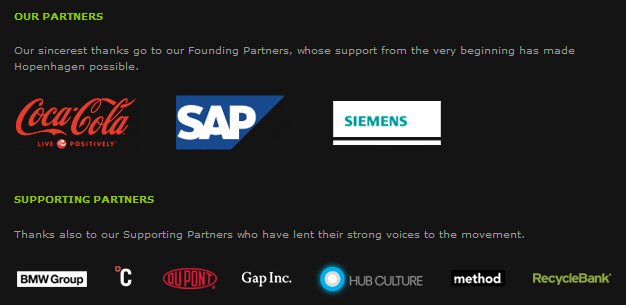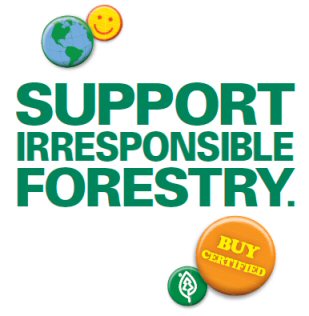Bring On The Strike: Greenwashing British Airways In A Tailspin
Posted by keith on 17th December 2009
Oh, the sheer hubris is making me smile so much! Unite, the union responsible for the welfare of cabin staff at British Airways has moved well ahead with plans for a 12 day all-out strike designed to ground the majority of British Airways craft over the lucrative Christmas and New Year period; and won’t it be a corker if it goes ahead:
Bruce Carr QC, representing the airline at a packed hearing yesterday, said the union was “depriving literally millions of people of a happy Christmas”.
He added: “The apparent recognition of the deliberate timing is highlighted by the fact that Unite needed to make [the strike] 12 days of Christmas, not 10 or 14 … It knew the number has a resonance for the many passengers who are deprived of flying with BA.”
Let’s suppose that the striking workers manage to ground half of BA’s fleet from just Heathrow and Gatwick for this period. Stephen Bowler’s plane spotting website gives a good estimate of 500 flights from the two airports every day, with about 40% being long-haul (more than about 5000 miles). It’s difficult to extrapolate precisely, but assuming each an Airbus A320 emits just over 9kg per kilometre travelled that’s…
…about 45 tonnes of carbon dioxide per flight (with an average of 5000 km per flight)…
…about 22500 tonnes of carbon dioxide per day…
…about 42750 tonnes of carbon dioxide equivalent per day, due to 1.9 multiplier from high altitude flying…
…about 256000 tonnes of carbon dioxide equivalent prevented from being emitted over the strike period, assuming half of planes are grounded.
Wow! That’s the same as the entire Central African Republic emits in a whole year. And that’s just direct emissions. I’ve taken into account the people who would have gone to other airlines in my 50% “grounding” figure, because it could be as much as 90% grounding if the strike is solid, but there are a hell of a lot of people who would think again about flying over the Christmas / New Year period if they were to experience a season at home again. Many, many of these people are habitual fliers who can’t imagine any other way of communicating, and heaven help anyone who wants to stop them exploring the world — but the cabin crew might manage that.
In case you think I am attacking British Airways out of hand, bearing in mind that aviation accounts, at the moment, for a relatively small proportion of global emissions, then you need to see the kind of nefarious tactics that BA have been using to convince us all that flying isn’t really a problem, and they are even one of the good guys when it comes to planetary ecocide.
First, their own web site, containing the following statements about the “efforts” they have been making to cut emissions:
We have actively campaigned for aviation to be included in global carbon trading since 2000.
We were the first airline in the world to gain practical experience through participation in the UK Emissions Trading Scheme, which enabled us to reduced our UK carbon emissions by 23%.
As a direct result of our efforts, the EU carbon trading scheme is going to include the aviation industry from 2012.
Exactly how did BA reduce its emissions by 23%? They didn’t cut the number of flights — oh no — they simply purchased a load of “permits” to pollute (actually, were virtually given them by the pro-flying UK government, but that’s another story) and struck them off their carbon balance sheet. Job done. Or rather, greenwash done. With aviation in the European scheme from 2012 there will be even more opportunity for BA to sweep their emissions under someone else’s carpet.
Second, they are a key member of Future Heathrow, an organisation promoting the (deep breath) “sustainable” expansion of London Heathrow airport. This is classic greenwash from their web site:
It has been suggested that the environmental costs of Heathrow outweigh its economic benefits but if capacity at Heathrow continues to be constrained, foreign hubs such as Frankfurt, Amsterdam and Paris will grow instead. This will not provide any climate change benefits but would severely damage the UK’s global competitiveness and UK jobs.
Of course, everyone in the UK will suddenly move to Germany, Holland or France so they can fly from there. Alternatively, without the expansion there will be fewer options for the airlines to seduce people into flying, so they might just stay at home ;-) And, of course, as part of Future Heathrow’s climate change mitigation, they will also be turning to emissions trading in a big way to “offset” the increase in Heathrow’s emissions (hang on, didn’t they say that the emissions wouldn’t increase overall?)
More about Future Heathrow can be found in this Unsuitablog article.
Third, British Airways are also a key member of the pro-flying lobby group Flying Matters. Ironically, for this article, the trade union that BA are fighting against, Unite, is also a member. Among their charming comments from their Press section is this one, essentially saying that the Archbishop of Canterbury is going to hell for suggesting people should grow their food locally:
The Archbishop of Canterbury has called air-freighted food “unsustainable” and wants it to be replaced by homegrown produce from thousands of new allotments.
Dr. Williams made his comments in an interview with the Times, in which he also said that he tried to have a “flight-free year” in 2008, but didn’t manage to.
Although Dr. Williams said he wanted to avoid creating an “instant crisis” in developing countries whose economies rely on the ability to export fresh food to market, FlyingMatters Director Michelle Di Leo told The Times that “the road to Hell is paved with good intentions.”
Alternatively, we could listen to Rowan Williams and not fall into the trap of thinking globalisation is what the financially poor nations of the world need – hey! Maybe they should be allowed to grow food for themselves rather than forcing them into market-led trade subservience.
British Airways, The World’s Most Hypocritical Airline.
__________
STOP PRESS: The strike has just been ruled “Illegal” by the High Court of England. That’s 256000 tonnes of carbon dioxide likely to be pouring into the atmosphere over Christmas once more…
Posted in Astroturfs, Corporate Hypocrisy, Offsetting, Techno Fixes | 2 Comments »














